I slept a dreamless sleep
Opening monologue, L.U.C.A.
I woke up with no memory
I do not know who I am
My sweet baby
Do not forget
You are not a monster

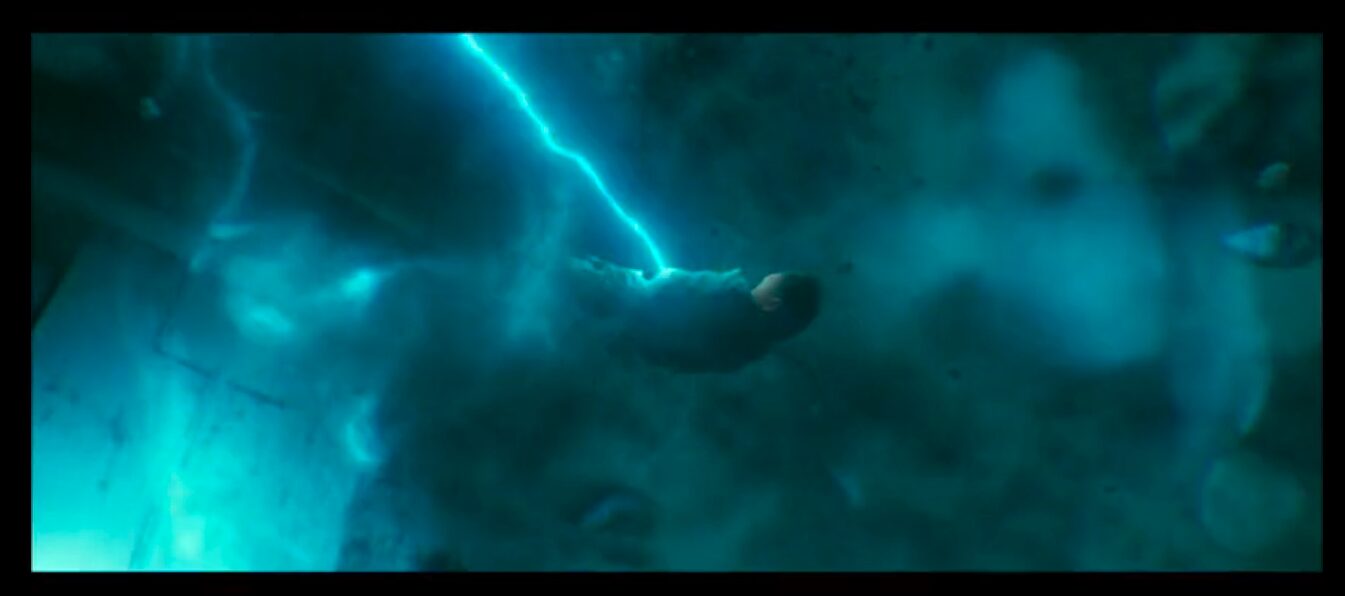
Regardless of what you end up thinking about the Korean drama, L.U.C.A.: The Beginning, you have to give the show credit for starting as it means to go on: enigmatic, dark and borderline unhinged.
A woman pursued through an abandoned building throws a baby over the rail. As it sails to the ground, it seems to build up energy until it’s surrounded in a protective bubble of energy. Lightning flashes, its eyes glow blue. The building crumbles.
In the centre of similar carnage, we then meet our protoganist, Ji Oh (Kim Rae-won), on the run from somebody with no memory of who he is. His path intersects with seemingly-invincible cop, Ha Neul Ae Gu-reum (Lee Da-hee) and the two try to solve the various mysteries of their lives.
What follows is either an examination of evolution, a discussion on social and personal memory, a brutal indictment of animal testing in scientific research, a statement on the destructive power of shared humanity, or a fantastic romance. Or possibly all of the above.
Like a lot of Korean dramas, it examines the intersection between religion and science when faced with something new. Like The Silent Sea, L.U.C.A is interested in what would happen if we managed to genetically engineer a different kind of human. But whereas The Silent Sea leaves the potential aftermath open to our own speculation, L.U.C.A. dives into the filth and swims around in it.
In fact, there’s so much going on in this drama that it’s difficult to structure a review around it. You will either see it as: a giant mess of disturbing images; a slow and torturous trainwreck of mangled metal; or a dramatic version of chaos theory culminating in some kind of strange order.
As a drama, L.U.C.A. will confuse you, entice you, annoy you, and horrify you. But as far as romances involving transgenic killing machines go, this one is definitely the sweetest.
The Plot and characters
Ji Oh (Z-O) is a genetically-engineered transgenic super human who was smuggled out of the lab when he was a child. He is capable of producing electricity like an eel and of healing from considerable physical damage.
But Ji Oh’s defensive capabilities come with a cost: whenever he regenerates, he loses most of his memories. Hunted, but with no memory of why or by who, he lives his life on the run; a transient existence punctuated by sweet moments that he inevitably forgets. Ji Oh wants nothing more than family, connection and belonging. But with every memory wiped, he is a blank slate waiting for his next imprint. Ji Oh is a perpetual infant waiting for parents to shape him.
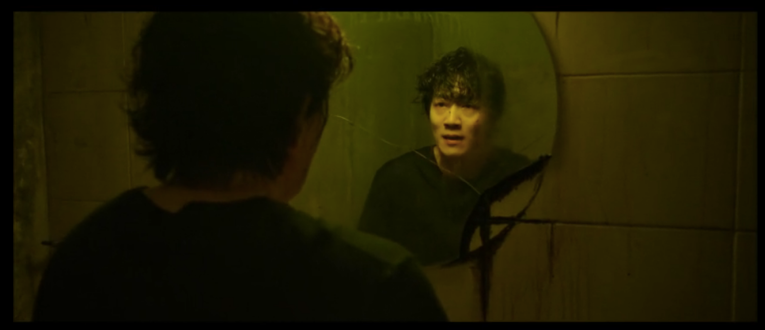
Kim Rae-won gives Ji Oh a surprising and welcome vulnerability that speaks to the character’s perpetual childhood. He imbues the character with the core of a sweet, kind child and then layers over it the confusion, anger and general hardening. One of the tragedies of this character is that every time he meets a caring, genuine person – ones who cares about him, accepts him for who he is and show him normal kindness – that memory is inevitably lost until all that’s left is a lifetime of cruelty and pain. If left alone, Ji Oh would have lived a very ordinary, unremarkable human life.
Instead of, you know, genetically engineering a transgenic clone army to commit genocide.
The astonishingly-named Ha Neul Ae Gu-reum (herein simply Gu-reum) is a detective who is investigating the disappearance of her parents. Ge-reum is the quintessential tough-as-nails, problems with authority, not particularly bright, blunt object that is the Korean drama detective. Punch first while demanding answers the person being punched is self-evidently not able to give.
She’s also a Dalgeon (after Cha Dal-Geon, the invulnerable lead of the drama Vagabond), bouncing off cars unscathed and walking away from severe head injuries and even heart failure with barely a scratch. Unstoppable, invulnerable, invincible. And rather ridiculous.

Sometimes it seems as if L.U.C.A. doesn’t know what drama it wants to be and this is most obvious in the writers making its female lead an action film hero (at least she didn’t have to do these things in a g-string). Gu-reum is fun to watch as long as you’re willing to suspend some disbelief and don’t mind spending eons of screentime watching her hit things.
Still, L.U.C.A. is about a jellyfish man with electric eel powers so, by that measure, Goo-reum’s invulnerability shouldn’t be too hard to handwave…
Lee Da-hee does the best she can with a part that has considerably less dimensions than her costar’s. And she and Kim Rae-won do have good chemistry.
These two characters bond enough that when Ji Oh is recaptured by the megalomaniacal misanthropic scientist that created him (Ryu Joong-kwon, played by Ahn Nae-sang), G-reum is motivated to rescue him. That she very nearly succeeds provides the show’s tragedy. Nothing that happened in L.U.C.A was inevitable. Hunanity’s eventual destruction is and remains entirely self-inflicted.
Ji Oh is quite literally made by humans. In every way.
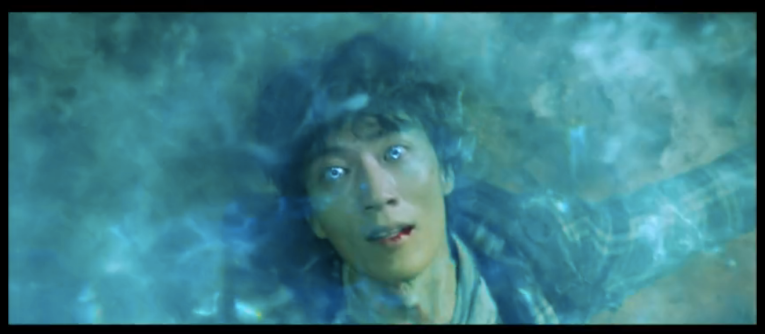
Man’s Inhumanity Not Just to Man
We don’t do it because we have the right . We do it because we have the power
Ji Oh, on humanity’s wholesale mistreatment of animals
While L.U.C.A. starts off with mystery, it soon plants its flag on the hill it means to die on (quite literally as it turns out). The way that humans as a species treat each other and other life on the planet.
There is actually so much going on through the show that, as I mentioned at the beginning of this review, it’s almost impossible to wrest a cohesive narrative from it. But if one were to choose one thing to highlight about the drama, it is its brutal and uncompromising statement on animal testing. In his amnesiac state, Ji Oh begins working for a company that helps medical laboratories dispose of dead testing animals. His glib dismissal of the atrocities visited upon these test subjects is called into stark relief when he is recaptured and becomes a lab animal himself.
Not that L.U.C.A is inherently anti-scientific. If anything, the show portrays a disturbing nexus between government, corporations, science and religion. These forces are represented by corporate backers, Korean intelligence, scientists, and a cult who see Ji Oh as their messiah. This enmeshed set of interests is quite literally called The Establishment. This means L.U.C.A is not aiming its metaphorical gun either at science or at religion but instead has the whole of humanity in its crosshairs. All institutions, scientific or otherwise, are merely human constructs used to excuse exploitation.
The script is rife with exploitative relationships, from Ji Oh himself to the soldiers maimed and forced to do the Establishment’s dirty work, to the members of the cult who are groomed to be surrogates to the miracle children being whipped up in Dr. Ryu’s lab.
Scene after scene in the middle portion of the drama is devoted to Ji Oh being tortured in the names of capitalism, national defence, science and God. All the same arguments leveraged in support of animal torture for research purposes are then directed at him as justification for his own mistreatment – and the mistreatment of his fellow guinea pigs. It’s brutal and blunt storytelling – and the point at which many viewers no doubt turned off – but it also leaves us with no doubt as to the writer’s message here.
Despite Ji Oh’s desperate attempts to lead a different, more gentle, kind of life, he in the end embraces the violence that characterised his adolescence. Ji Oh is entirely the violent product of a violent humanity. It’s no surprise he decides we need to be replaced. Not just because he’s been on the receiving end of our exploitation but because the justifications we use for it have been internalised by him as well. Like a child brought up by abusive parents directing that abuse back at them, humanity is hoist by its own Social Darwinist petard.


Evolution and the terrible legacy of Social Darwinism
We humans have realised how incomplete we are. But we made the wrong choices to compensate for our incompleteness. Rather than becoming stronger, we built machines. Rather than developing our brains, we built computers. Soon there will come a time where we leave the world to machines and thinking to A.I.. Humans chose technology over evolution.
Ryu Joong-kwon, on why we need to pursue artificial evolution
There are a lot of ideas throw on the wall in L.U.C.A. and, while it’s tempting to think writer Chun Sung-il was randomly hoping something would stick, it’s likely the densely-packed script is deliberate – if not entirely articulate. Sung-il simply has a lot to say about a lot of things – from medical ethics to the nature of humanity and about evolution itself.
The quote above summarises very well the tension between actual evolutionary theory and the terrible, distorted, eugenics of Social Darwinism. In the last three years, we’ve seen an unfortunate rise in the this discredited and anti-scientific philosophy. It’s most commonly characterised by applying ‘survival of the fittest’ to individuals within a species, rather than to a species as whole – and to misinterpreting ‘fittest’ as ‘strongest’ when in fact ‘fittest’ means ‘most adapted’. Smarter, stronger have nothing to do with evolution. Evolution is entirely about climatic and environmental adaptation.
This is best described in the very funny 2001 film, Evolution, where an invading alien species uses accelerated evolution to colonise Earth from only a few cells. When humans fight back, creating slightly altered environmental conditions, the cells that had been trying to create primates and other intelligent lifeforms then evolve to form the height of evolution in this context – a giant single celled organism. An amoeba. It’s simply the best adaptation for the prevailing environmental conditions.
Humans are already climatically and environmentally adapted. There is no process of evolution that our technology is bypassing here. Dr. Ryu is making the mistake of assuming that evolution means that something gets better, that humans dominate because we are superior and that the process of becoming superior is something that would continue despite the stable climate we’ve enjoyed for the last 6000 years.

His arguments are the same ones that colonisers and racists have utilised ever since expanding human knowledge stopped them from being able to claim God’s will as a justification for their atrocities. It’s the same product, simply rebranded. It’s marketing.
It’s true that humans have effectively destroyed their own ecosystem and have sparked a chain reaction of rapid climate change that we will be unable to adapt to. But this just puts the lie to the mad doctor’s argument. As anyone can see from events in the last few years, machines cannot save us from climate change. They are no substitute for physical adaptation. If anything, computers, artificial intelligence and most of our technology generally are also dependent on stable climatic conditions. Climate change will destroy them too.
But Dr. Ryu shows no sign that he is responding to climate change anyway. If anything, his programme of genetic manipulation is scattershot without a clearly defined target. Dr. Ryu has no clear idea of what changing environmental conditions he’s trying to adapt humanity to. Because what he’s talking about isn’t evolution at all. It’s dominance. It’s some kind of mythical genetic superiority.
Dr. Ryu is a eugenicist trying to create a human that can control and dominate over other humans. One that in his mind would be the pinnacle of evolution with the ‘best’ aspects of every species.
He’s trying to create a master race.
And, as the show’s final scene seems to suggest – he succeeds.

The Ending
L.U.C.A.’s full name is L.U.C.A.: The Beginning but it could easily have been called The Ending instead. Because that’s what L.U.C.A. is exploring: the twilight of the human race and the beginning of a new era dominated by a new species.
In the drama’s first half, Gu-reum’s confides in a scientist and family friend who has a stark and callous position in relation to Ji Oh: he needs to be eliminated before he can breed. While this seems harsh to Ji Oh, it is based on a solid scientific position: one that Dr. Ryu elucidates later as he quietly descends into an even more megalomaniacal fervour the closer that his dream becomes.
Put an invasive species into an ecosystem and it causes mass deaths. This is nowhere more stark than in my own country, Australia. The imported European honey bee has gone feral, proving devastating to many local species. The cane toad has spread widely, killing and displacing local wildlife as it goes. In human history, this happened when Homosapiens reached a Europe already populated by the Neanderthals. The locals were displaced, some inter-breeding occurred. In the end the Neanderthals are gone and we are here.
Dr. Ryu uses this exact example to explain what he’s trying to achieve in creating his hybrids. A disruptive, invasive species that will slowly replace Homosapiens.
While many people felt the show’s last scene was open-ended, it’s not at all. By helping Dr. Ryu to create his clones, Ji Oh has ensured the eventual extinction of the human race. We don’t need to see the hybrids spreading, growing in number, interbreeding, displacing, killing and eventually replacing humans – a process that will take years if not decades. That it will happen is a fact of biology, ecology and history.
L.U.C.A. is the story of how humanity’s hubris, inherently exploitative nature, and desire to dominate led to its own destruction. And it’s the story not just of how Ji Oh ended up replacing us but of why he ended up wanting to. And that story was told.
Was it told well? Well now…
Good science fiction vs good television
As you can see from the essay I’ve subjected you all to, L.U.C.A. is good science fiction. In fact, it’s very good science fiction. It uses speculative fiction elements to explore a ‘What if’ scenario that sheds light on humanity and society and asks some very uncomfortable questions about the resurgence of Social Darwinism and neo-Nazism in a post-Trump pandemic world (how many times have we been told that repeated Covid infections are a good thing because of ‘survival of the fittest’ and ‘weeding out the genetically weak’). It’s nonsense but it’s nonsense that’s taken hold even as society at large has rejected it as a flawed piece of sophistry with no basis in science or in ethics.
The question then becomes whether L.U.C.A. is good television. And on that front, we’re on less solid ground. L.U.C.A. is dark, violent, sometimes deranged. It’s a show about a madman that looks like the inside of that man’s mind. L.U.C.A.’s unrelenting parade of violence is necessary for us to understand how Ji Oh ends up where he is, doing what he’s doing. After all, if Ji Oh wasn’t forced to defend himself then his memory wouldn’t be endlessly wiped and he wouldn’t constantly re-emerge as a child looking for a parent to shape him. His existence is a constant, gruelling battle for survival that can be used to justify a ‘survival of the fittest’ narrative. If he constantly has to fight to survive, then fighting is what he will do. It’s also necessary to bring its audience around to the viewpoint that maybe, just maybe, Dr. Ryu is correct and humanity isn’t worth saving anyway.
If bastards like you are humans, I should have lived as a monster
Ji Oh to Dr. Ryu

Whether you think L.U.C.A. is a misunderstood work of genius or a poorly-executed trainwreck will depend on what you hope to get out of watching a drama. In my opinion, the show is far more coherent than people give it credit for but it’s also 12 episodes of watching Gu-reum get hit on the head and things exploding. A lot of people got to the point where they simply didn’t care about the characters.
Even after watching the show twice and writing 3000 words on it (sorry), I still can’t decide whether the show is good from a production standpoint or not. It’s certainly stylish and well filmed and the soundtrack is great.
But the pace drags somewhat at the beginning as Ji Oh runs and people chase him and every second scene is a fight scene. And then the middle segment is just unending brutality as the show rams its point home about animal testing and medical ethics. We finally get a hiatus as Ji Oh and Gu-reum find happiness in exile – and a romance between the two that is surprisingly sweet. But the final run home is a downhill spiral into darkness.
In fact, from a classical narrative standpoint, L.U.C.A is neither comedy nor tragedy. It starts off badly and ends up worse. It’s hard even to say what the happy ending version of this show would have been. While we might wish for Ji Oh and Gu-reum to live happy, quiet lives with their daughter, her existence puts untested genetic variation into the gene pool. It’s entirely possible this would lead to the same extinction outcome. In fact, for humanity, Ji Oh’s death and his daughter’s death would have been the best outcome. And that’s not entirely happy either.
It is possible for something to be good while not being entirely enjoyable and this is perhaps L.U.C.A‘s flaw. It makes the points it wants to make and it makes them well. But that doesn’t mean it’s a show people enjoyed watching.
In the end, you’ll just have to give it a go and decide for yourself.
NOTE: This piece was edited to add the section on the ending after reader feedback
L.U.C.A.: The Beginning is available to stream with English subtitles on Viki


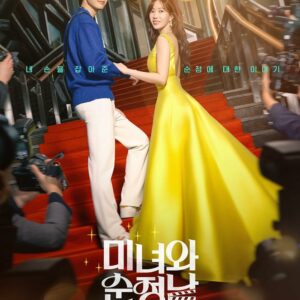
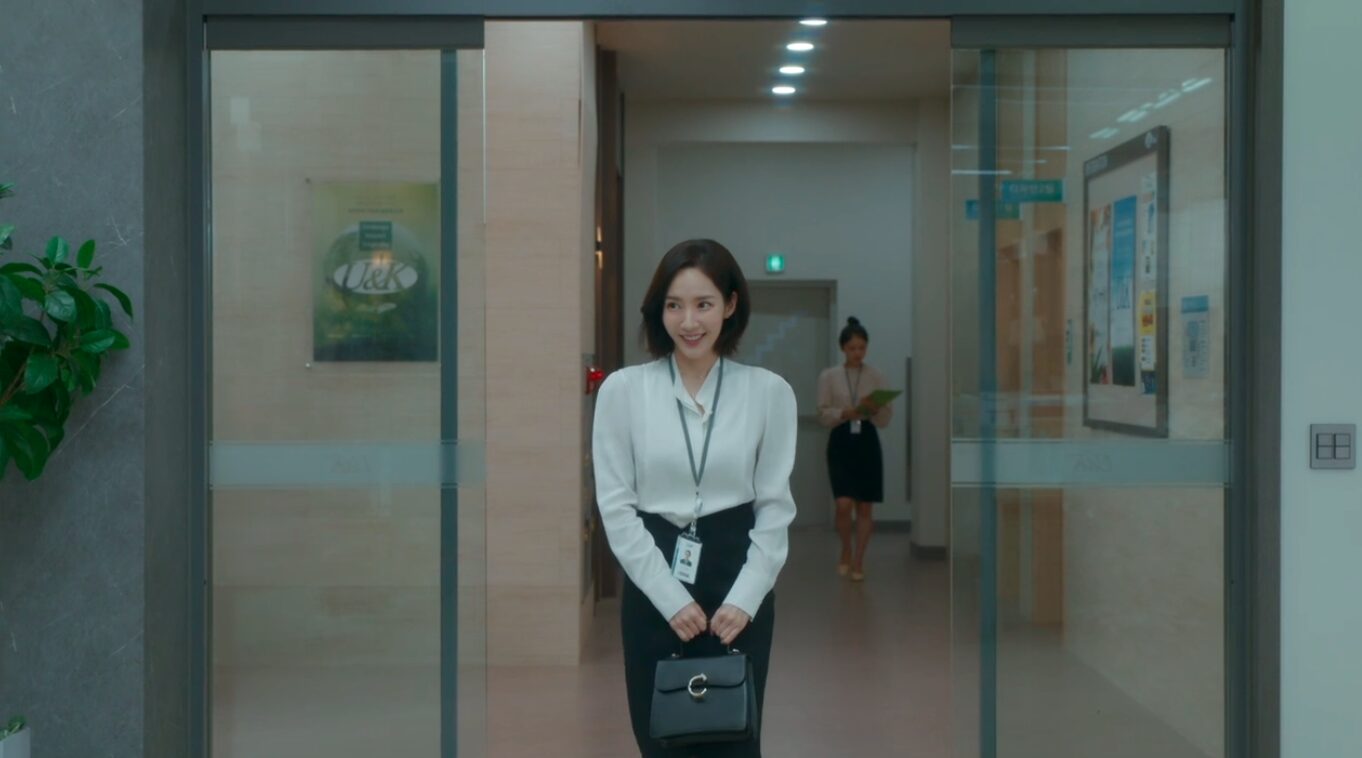
I relished the first seven episodes and then it became bad television for me. The last three episodes unfolding to be a complete disappointment. So, I could only give it 5/10. But, I will say this – it had the potential to be super awesome.